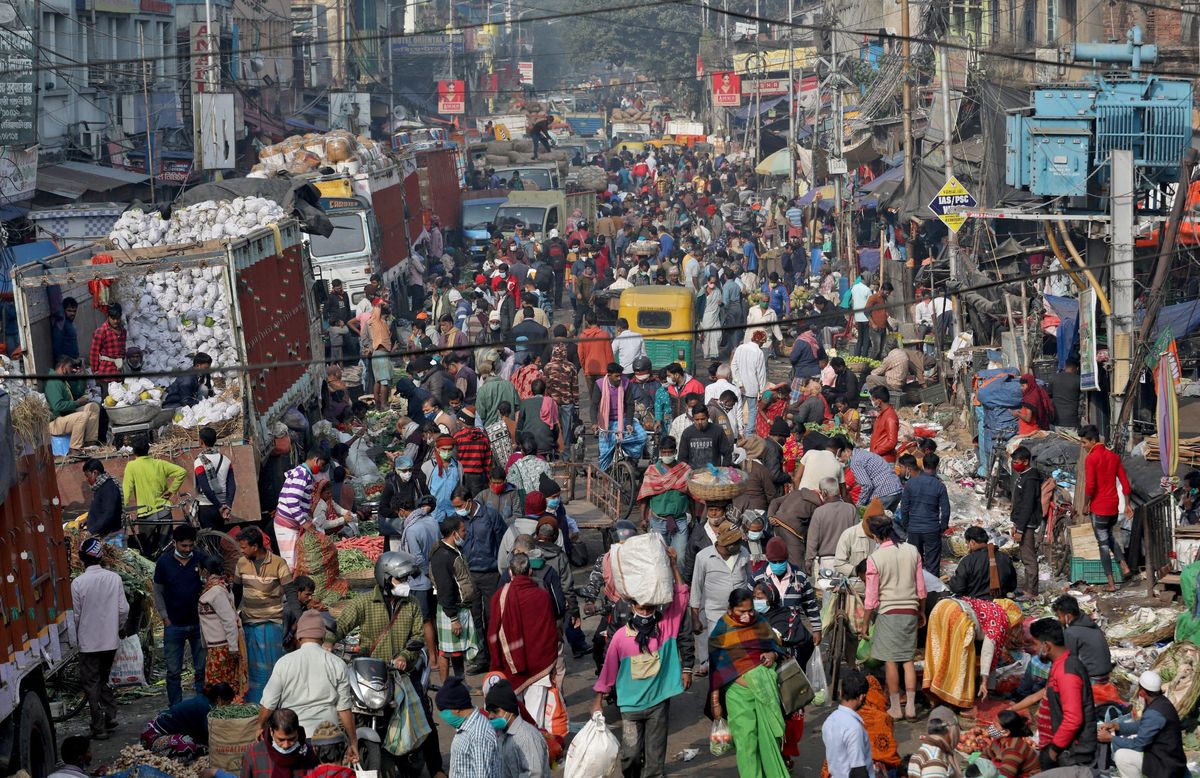India will overtake China in population figures by November, says UN report

A few minutes every morning is all you need.
Stay up to date on the world's Headlines and Human Stories. It's fun, it's factual, it's fluff-free.
In just four short months, by November, the earth will be home to 8 billion people, the highest global population yet. The UN says this growth hasn’t been going as quickly as it used to, and it’ll be another 60 years or so before it hits its peak at about 10.4 billion.
But part of what’s interesting about population growth now is that it isn’t evenly distributed. In fact, more than half of the growth over the next 30 years will happen in only eight countries – the DRC, Egypt, Ethiopia, Nigeria, Pakistan, the Philippines, Tanzania and India.
And that last one is especially important since, right now, India has the world’s second-largest population, usurped only by China. But, by next year, the UN says India will have caught up to China and will be overtaking it. That milestone would make India not only the world’s biggest democracy but also the world’s biggest country, period.
On the flip side, China is looking down the barrel of a population decline, with the current world’s largest country having one of the lowest fertility rates at 1.15 children per woman.
Still, researchers say that the global population increase has been and will continue to be fueled by better medicine and healthcare, which means that more kids make it to adulthood, and more adults survive to be seniors. Experts say that the proportion of seniors will grow from 10% now to 16% in less than 30 years.
So what’s the big whoop? Truth be told, the population moves at a glacial pace, but how many people there are in the world has a bunch of weird and complicated economic consequences. Some people (including, famously, Elon Musk) are saying that the population decline we’ll see before the end of the century could cause some serious problems down the road.




Comments ()